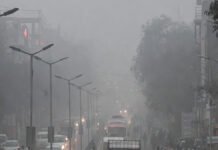The Silent Peril of Cardiac Arrest: Why You Shouldn’t Ignore the Signs
The Alarming Reality: Sudden Deaths and Cardiac Arrest
Despite their robust appearance, individuals from all walks of life have been falling victim to sudden deaths while participating in seemingly harmless activities like dancing or working out. Medical experts point to cardiac arrest as the grim reaper behind these tragedies. Distinct from heart attacks, cardiac arrest carries a lethal nature, especially when it occurs outside medical facilities. A shocking 90% of such incidents result in fatality, and alarmingly, younger populations are not exempt.
The Anatomy of Cardiac Arrest: More Than a Heart Attack
Cardiac arrest is an abrupt cessation of the heart’s function, leading to an immediate stoppage of blood flow to vital organs. This lack of oxygenated blood to the brain is often fatal. When cardiac arrest strikes, initial symptoms may include acute chest pain and light sweating, often mistaken for a heart attack. Yet, within minutes, these signs escalate to a full-blown cardiac arrest, leaving little time for life-saving intervention. Statistics suggest a bleak 3% survival rate for victims experiencing cardiac arrest outside healthcare settings.
[ez-toc]
The Lifeline: CPR to the Rescue
CPR (Cardiopulmonary Resuscitation) is the glimmer of hope in such dire circumstances. It’s a procedure that can potentially save lives if administered promptly and correctly. Regrettably, the lack of public awareness about CPR remains a critical issue, resulting in missed opportunities for survival.
The Unseen Culprit: Coronavirus and Cardiac Arrest
The ongoing pandemic has further complicated matters. The coronavirus contributes to the formation of blood clots, which can hinder the heart’s pumping action. This obstruction can quickly escalate into a heart attack, subsequently leading to cardiac arrest in a matter of 15 to 30 minutes. Even with impeccable fitness and dietary habits, one remains at risk.
Recognizing the Warning Signs: Symptoms to Watch For
Be alert to these symptoms, which may indicate an impending cardiac arrest:
- Severe chest pain
- A sensation of obstruction in the throat
- Sudden changes in body functions
- Shortness of breath
Prevention Is Better Than Cure: Health Precautions to Consider
Regular exercise undoubtedly promotes both physical and mental well-being. However, if you have any medical conditions, particularly heart-related, exercise caution. Consult your healthcare provider before engaging in strenuous activities or exercise routines. Following a doctor’s guidance can be your best defense against unforeseen health crises.
In summary, cardiac arrest is an urgent health issue that demands immediate attention. Being informed and prepared can make all the difference. So, take note, stay vigilant, and consult your healthcare provider for personalized advice.
About the Author
Dr Ankit Garg
Surgeon and Assistant professorDr Ankit Garg MBBS , MS , FIAGES , Assistant Professor Department of Surgery NDMC medical college and Hindu Rao Hospital Delhi
Contact – :
Email – : drankitgarg2007@gmail.com
Mobile – : + 91- 7351296379
















